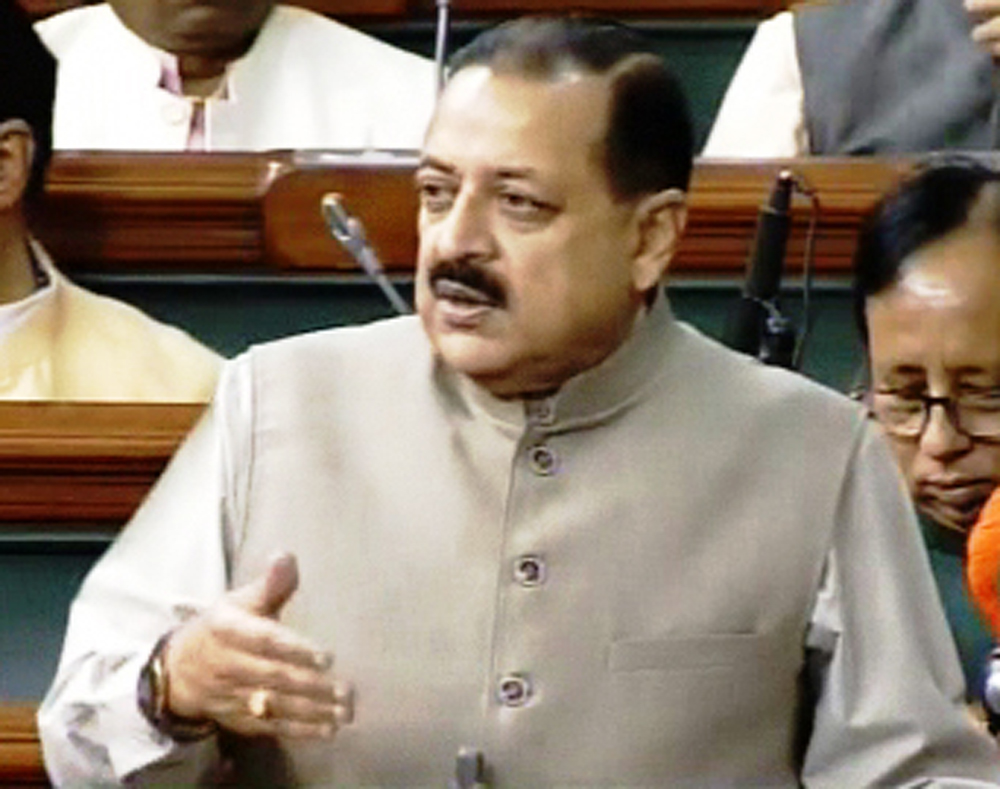Excelsior Correspondent
NEW DELHI, Nov 27 : Union Minister of State (Independent Charge) Development of North Eastern Region (DoNER), MoS PMO, Personnel, Public Grievances, Pensions, Atomic Energy and Space, Dr Jitendra Singh said here today that the Government has absolute right to retire any officer/official prematurely, on the ground of lack of integrity or ineffectiveness, in the public interest, by giving notice of less than three months in writing or three months’ pay and allowances in lieu of such notice.
In response to a question in the Lok Sabha today, Dr Jitendra Singh said, in the Department of Personnel & Training (DoPT), there are provisions under FR 56(j), Rule 48 of Central Civil Service(Pension) Rules, 1972 and Rule 16(3) Amendment of All India Services (Death-cum-Retirement Benefits) Rules 1958, according to which, the government has an absolute right to do so. He said, such provisions can be applicable on a government employee, if he is in Group-A or Group-B service or on a post in a substantive, quasi-permanent or temporary capacity and had entered service before attaining the age of 35 years and is over the age of 50 years.
Meanwhile, Dr Jitendra Singh denied that the government has any proposal to reduce the retirement age from 60 years to 58 years. “Presently, there is no such proposal to reduce the age of retirement on superannuation from 60 years to 58 years”, he stated.
In reply to another question related to DoPT, Dr Jitendra Singh said, the Modi government has made earnest efforts to encourage the use of Hindi and other vernacular languages in the day-to-day working in offices. As for the use of Hindi in the conduct of All India competitive examinations like Indian Engineering Service, Indian Economic Service, Indian Statistical Service, etc, he said, the Union Public Service Commission (UPSC) has cited the report of a High Level Committee which studied the issue and put across the constraints of the text-books in higher education or technical education not being available of the same standards as in English and also the constraints of the availability of translators. For this, he said, the earlier governments which ruled the country before 2014 will have to answer, because the Official Language Resolution was adopted by both the Houses of the Parliament 51 years ago, way back in 1968, but till 2014, no serious effort was made in this direction to create conditions which could facilitate the inclusion of all the Eight Scheduled languages as an alternative medium for the All India Central Service Examinations.
Trending Now
E-Paper


